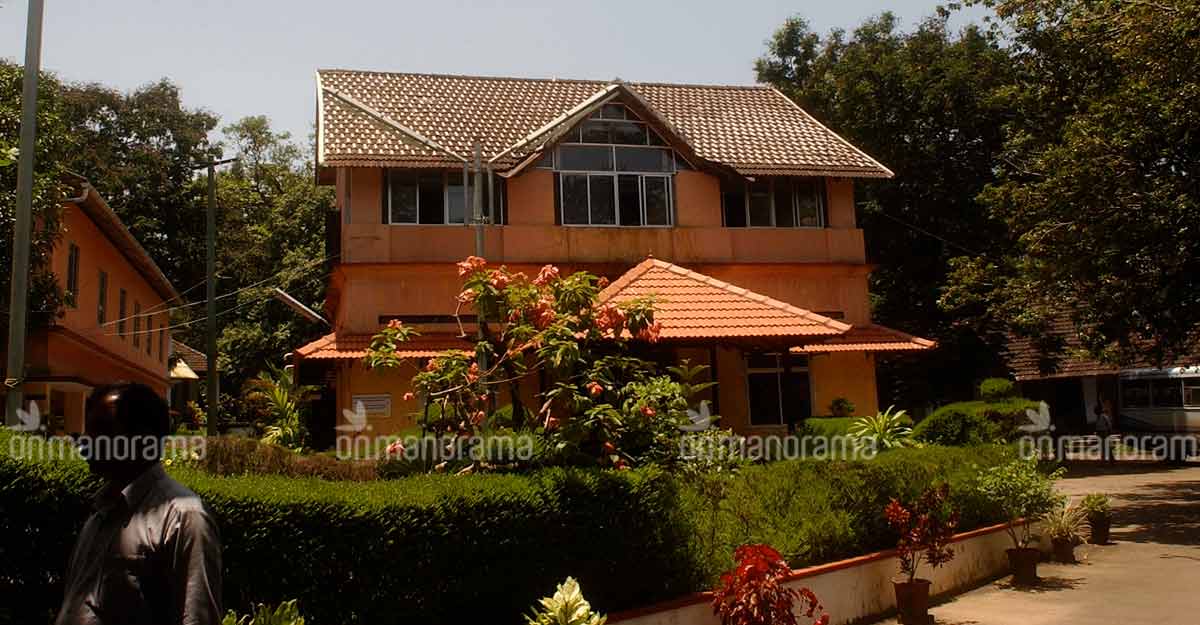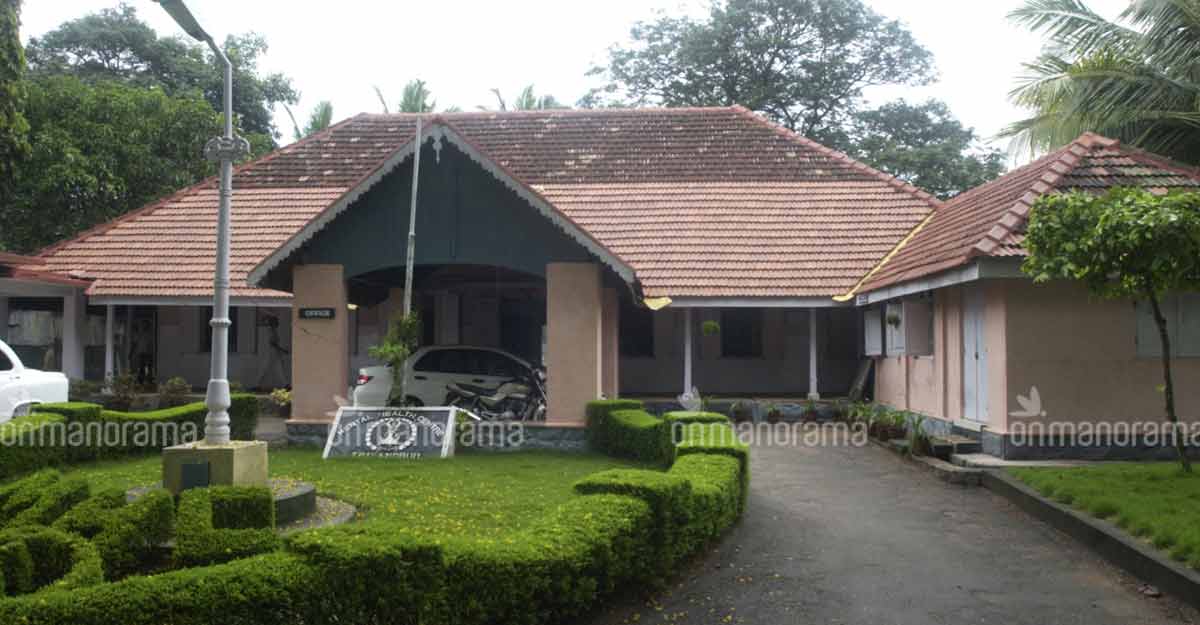6 dozen ticking lives buried in dark alleys of Kerala's mental health centres

Mail This Article
There are many in Kerala who have strayed out of existence and are not being granted a re-entry.
These are men who have been living locked inside bare cramped cells before Narendra Modi became chief minister of Gujarat -- some were locked in before the Babri Masjid went down, some before they could even set their eyes on a curly-haired lad called Sachin Tendulkar, some before Indira Gandhi was shot dead and long before her son Rajiv Gandhi was blown away by a suicide bomber. And there is at least one, still breathing, who was put behind bars couple of years before the Indo-Pak war in 1971.
These are men locked not in Kerala's 37 big and small jails but in Kerala's three mental health centres; in Thiruvananthapuram (Oolampara), Thrissur (Poothole) and Kozhikode (Kuthiravattom).
These are men who have been accused of murdering close family members, fathers or brothers or uncles, who were later found to be of unsound mind and so had to be shut inside mental institutions.

There are nearly 65 undertrial/remand prisoners in these three mental centres, and 12 of them have been awaiting trial for 20 or more years. Trial in a murder case can begin only if the accused is certified "mentally fit". None of them has yet been declared fit by doctors.
Eternity in a room
One of the undertrial prisoners in the Kozhikode centre has been spending almost his entire waking and sleeping hours for the last 52 years in a rectangular space called 'forensic cell', a constricted space that cannot accommodate more than one table tennis table.
The man, who is now 75, was brought to the Centre as a 23-year-old in 1969, when E M Sankaran Namboodirippad was Kerala's chief minister and has never seen the outside world since.
There is another who has spent 43 years in a forensic cell in the Kozhikode's Kuthiravattom centre – he was locked in when the Emergency declared by Indira Gandhi was on – and another who was brought to the same Centre a year before Mrs Gandhi was shot. He has been there for 37 years now.
There are three in Thiruvananthapuram's Oolampara centre who have been locked inside forensic cells for over 30 years. (There is just one convict in all of Kerala's jails who can be considered nearly as doomed. He has by now spent 25 years in jail.)
“Unlike in prison where the prisoner gets the chance to step out of the cell at least three times to collect their food and can move around for some time within their block, here they are made to step out only once, for a morning bath. The food is served inside. They are locked inside the whole day without any activity,” said J Sandhya, a human rights lawyer who had worked closely with mentally unfit undertrial prisoners in Thiruvananthapuram.
Unlawful custody

And almost all of them are chronic schizophrenics with zero chance of recovery. If there is no major legal intervention, this can only mean that they will neither be brought to trial nor rehabilitated. They will forever exist in the semi-darkness of their 'forensic cells', as good as being buried alive.
To keep a person in a mental institution indefinitely is a violation of fundamental rights, too. Here is what section 19(1)(a) of the Mental Healthcare Act, 2017, says: " Every person with mental illness has a right to live in, and be part of and not be segregated from society. Here is what section 19(1)(b) says: "A person with mental illness should not remain in a mental health establishment merely because he does not have a family or is not accepted by his family or is homeless or due to absence of community based facilities."
It is not just the undertrials who suffer this fate, men who were declared mentally fit and were later acquitted by the courts are also stuck in these centres. There are over 25 such people, lodged in all the three centres. One of them in the Thiruvananthapuram centre has been in the institution, living fully locked inside a 'forensic cell', even 29 years after his acquittal.
There could be redemption for both undertrials and the acquitted if the courts could erase minor confusions regarding certain aspects of the law dealing with the rehabilitation of the mentally ill.
Suffering's maximum
In the case of undertrials in mental health centres, no one knows what is to be done with those charged with murder or such serious crimes that could carry a life sentence or capital punishment.
“No one knows when the criminal proceedings against mentally ill undertrials could be dropped and efforts at rehabilitation should begin. Should it be 15 years or 20 or 25? Even normal prisoners sentenced to life are usually set free after 20 years,” a senior judge associated with one of the District Legal Services Authorities in Kerala said.
“If undertrials are kept indefinitely in these centres, it is only because of the remote possibility that these people charged with what looks like cold-blooded murder could get a death sentence if at some uncertain future they are declared mentally fit and their trial begins,” the judge added.
Mercy for Charanjth Singh
The Delhi High Court had in 2005 quashed the proceedings related to an undertrial prisoner, Charanjith Singh, after he had been in a mental health centre for 20 years.
The Court was basically moved by the plight of the undertrial prisoner. "Not only has the illness from which he is suffering, namely schizophrenia, worsened over time but shocking information given in the court is that he is now suffering from cancer as well. He is virtually a vegetable who is close to death," the Delhi High Court order said.
There are 12 undertrial prisoners and one acquitted man in Kerala who have served more time in a mental institution than Charanjith Singh.
Silent killer named schizophrenia
Psychiatrists Onmanorama talked to said schizophrenia, which is the condition of most of the undertrials charged with murder in Kerala's centres, worsens over time. "Schizophrenia is unspeakably dehumanising. It perhaps would not kill as quickly as cancer but still its effect on a human being is far worse," a psychiatrist who had once worked at the Thiruvananthapuram centre said.
He said many undertrials in Kerala's health centres are chronic schizophrenics whose chances of recovery are nil. "With the passing of time, they lose their ability for self care and sociality, their humanness drains out and they develop debilitating schizophrenic conditions like alogia (loss of spontaneous speech), avolition (absolute lack of motivation), anhedonia (aversion for pleasure) and affective flattening (a condition in which all emotions just conk out)," the psychiatrist said.

How much is half of a life sentence
Besides Charanjith Singh's condition, the Delhi High Court had also taken into consideration a major recommendation made by the National Human Rights Commission. The NHRC had said that when the trial of a mentally ill person is suspended for a period longer than 50 per cent of the possible sentence (subject to a maximum of three years), the matter should be informed to the legal authorities.
No other high courts, including Kerala's, have followed the Delhi High Court's example, even after the Supreme Court, too, issued a similar order. The apex court said a mentally unfit undertrial prisoner should be rehabilitated after half the possible period of punishment for the crime charged had been served.
However, the highest court's order was not a rounded one. "It did not factor in serious crimes that could bring life imprisonment or death penalty. A life sentence is indefinite, no period has been fixed, could even be forever. How is anyone to find the half of that," said J Sandhya, the human rights lawyer.
Trouble with safe custody
As for the acquitted who still languish in mental institutions, the law seems to be clear but the 'discharge orders' issued by lower courts seem to introduce a technical hurdle. A recent Kerala High Court order, exonerating a murder accused citing his mental illness, said that the state government could hand over the person to “any of his friends or relatives”.
However, the Social Justice Department officials said that lower courts, while acquitting a mentally unsound person, have in many cases written down that the person be “kept in the safe custody of the mental institution”. “This prevents us from de-institutionalising the person and handing him over to any of the NGOs enlisted by the government to rehabilitate such people,” a top Social Justice official said.
This mostly happens in Kozhikode and Thrissur. “In Thiruvananthapuram, the court had specifically stated that they could be handed over to friends or relatives and this made it easy for us to facilitate the transfer of six acquitted people to an NGO,” the official said. “But we have shortlisted 33 NGOs for the purpose and if courts could specifically state that acquitted persons could be handed over to friends or relatives, these NGOs could be put to better use,” the official said.


